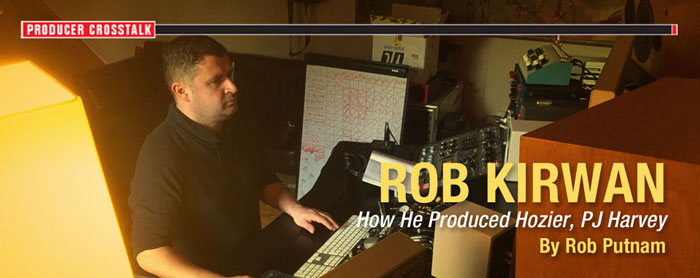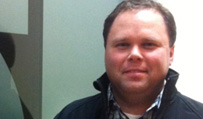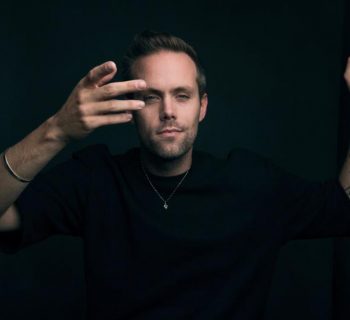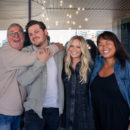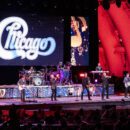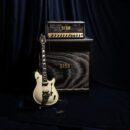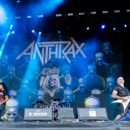Dublin-based producer, mixer and engineer Rob Kirwan got his start in 1992 when, as a teenager, he knocked on the door—literally—of Windmill Lane Recording Studios. After several months of persistence, he was given an entry-level job. “I was lower than a tea boy,” he recalls. Within a year, he was the tape operator on U2’s Zooropa alongside Flood (Mark Ellis). He’s since worked with artists including PJ Harvey, Editors and latest Irish success story Hozier.
The way he undertakes a new project—or, indeed, decides to take one on—begins with the songs. He listens to demos. “I need to hear songs, first and foremost,” he says. “If a band doesn’t have them, I’m going to be pulling teeth in the studio. Secondly, there’s pre-production. Get the band into a room where you’re not spending money. Make all of your mistakes there. Try all the crazy ideas you might have. If you’ve got a reggae song at 80 BPM, let’s change the key and do it as a punk song at 160 BPM. Turn the songs inside out.”
Kirwan was tapped to work with Hozier after a series of misfired sessions with other producers. “People weren’t sure what to do with him,” he explains, “and he wasn’t sure himself. After two or three recording sessions, he retired to lick his wounds. He wrote some demos and I got a call, based on the work I’d done with PJ Harvey. Initially, my brief was to get him to re-sing on top of the demos and then mix them. When I listened, I realized everything needed to be re-recorded, except for the vocal, which was fantastic.”
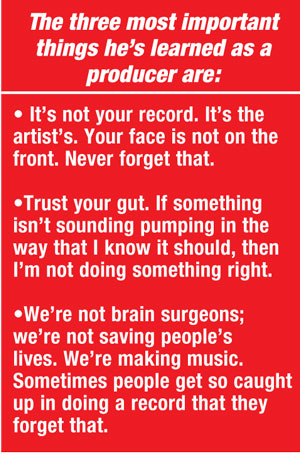 What about selecting album singles? His experience advises against it: “There’s nothing worse than having a bunch of demos and saying, ‘That’s the single.’ It’s never going to live up to expectations. A number of times I’ve worked on a record and it’s been tarnished by the ‘single’ moniker. The so-called lead track was murdered because someone called it a single early in its evolution and it never made the grade. People don’t hear the song for what it is and for what it should be.”
What about selecting album singles? His experience advises against it: “There’s nothing worse than having a bunch of demos and saying, ‘That’s the single.’ It’s never going to live up to expectations. A number of times I’ve worked on a record and it’s been tarnished by the ‘single’ moniker. The so-called lead track was murdered because someone called it a single early in its evolution and it never made the grade. People don’t hear the song for what it is and for what it should be.”
While producing Hozier, Kirwan was also producing another Irish band: Delorentos’ Night Becomes Light. “They were so completely different,” he explains. “Delorentos probably needed more hands-on work. I did a lot of arranging with them. With Hozier, I hardly did any. The challenges were so unique, and I worked with them on alternating weeks. There weren’t days when I was doing two different songs by two different artists.”
When it comes to the biggest challenges of his career, they’ve been external stresses. “With Hozier, the issue was the pressure the label was putting on both of us because there was a lot of money involved,” Kirwan recollects. “But the last PJ Harvey record [Let England Shake] was a technical challenge. We recorded it in a church in the country. Everything sounded reverberant and hard. A lot of [the trouble] was making it sound less like a church. There were many trips to IKEA to buy rugs and baffling. The treatment of the room and the instruments’ sounds are more important than getting your phase correlation right on the drum kit.”
Contact Fundamental Music, karen@fundamentalmusic.management

